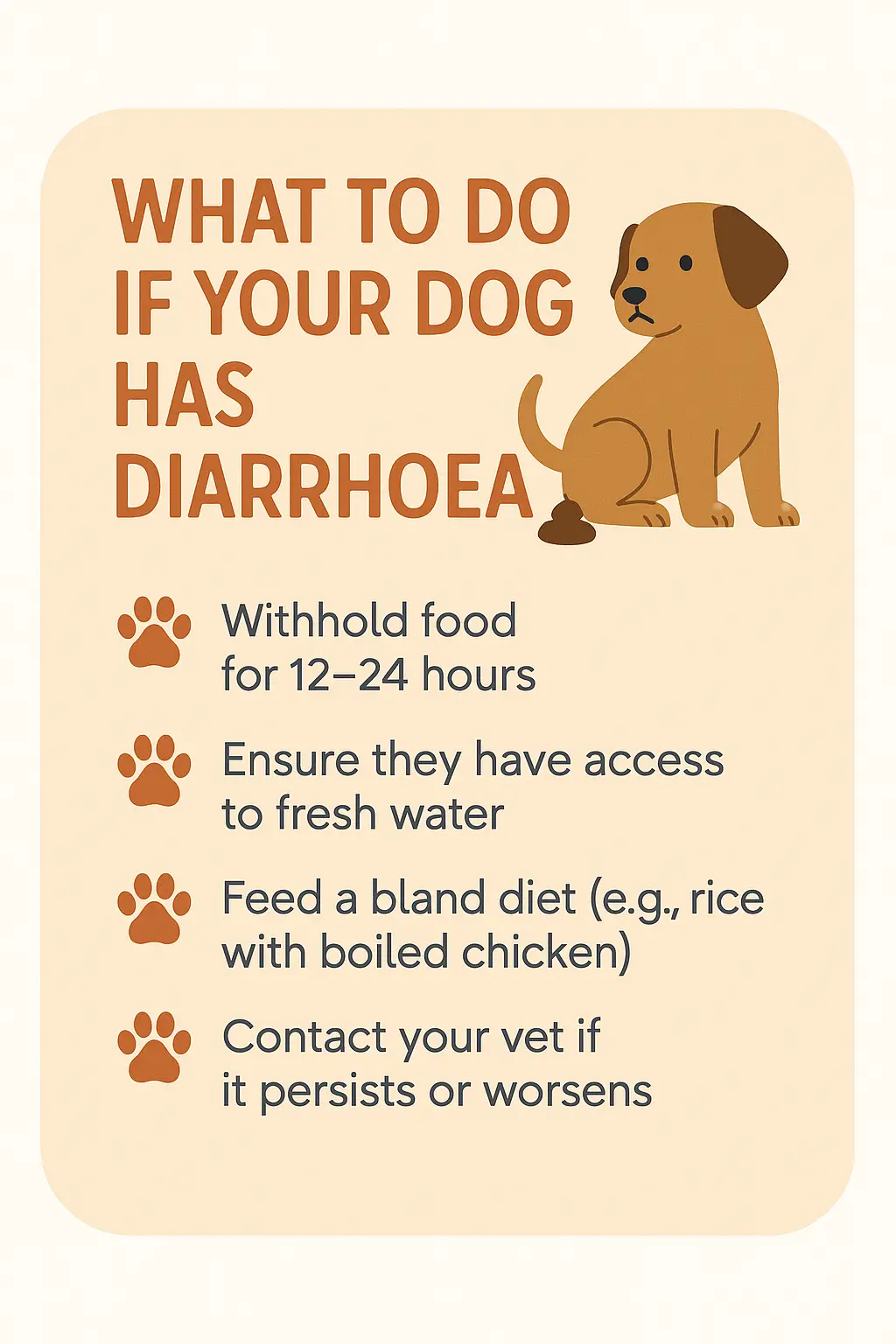
- Monitor Symptoms:Pay close attention to your dog’s overall behavior. Look for signs such as vomiting, lethargy, or blood in the stool, which can indicate a more serious issue (VetStreet, 2021). Keep a detailed record of the frequency and consistency of the stools to provide valuable information to your veterinarian if needed (American Kennel Club, 2022).
- Adjust Diet:Implement a bland diet consisting of boiled chicken and plain white rice (PetMD, 2020). This diet is gentle on the stomach and can help settle your dog’s digestive system. Gradually transition back to their regular food after the symptoms have resolved, ensuring any changes are made slowly to avoid further upset (VCA Hospitals, 2019).
- Hydrate: Hydration is critical during bouts of diarrhoea. Make sure your dog has access to fresh, clean water at all times (ASPCA, 2020). Additionally, consider providing an electrolyte solution designed for pets if you notice signs of dehydration, such as dry gums, lethargy, or sticky saliva (The Merck Veterinary Manual, 2021).
- Avoid Treats:Refrain from giving treats or high-fat foods during the recovery period to prevent irritating the digestive system (The Spruce Pets, 2021). Stick to a simple feeding schedule to promote gut healing, focusing solely on the bland diet until your dog has fully recovered.
- Consult a Vet: If your dog’s symptoms persist for more than 24 hours or worsen, it is crucial to contact your veterinarian (Pet Care, 2022). Seek immediate medical advice if you notice severe dehydration, blood in the stool, or if your dog exhibits signs of pain or distress (Veterinary Partner, 2021).
- Maintain Cleanliness:It is essential to clean up any messes promptly and thoroughly to prevent your dog from re-ingesting contaminated material, which can exacerbate the issue (Chewy, 2021). Use pet-safe cleaning products and ensure the area is disinfected properly.
- Consider Probiotics:After consulting with your veterinarian, consider incorporating probiotics into your dog’s diet (Veterinary Clinics of North America, 2020). Probiotics can help restore the natural balance of good bacteria in the gut, promoting digestive health and overall recovery.
Taking these steps can help manage your dog’s diarrhoea effectively and promote quicker recovery. Observing your pet’s response to treatment and remaining vigilant about their health is essential for preventing future episodes and ensuring their wellbeing.
References:
- VetStreet. (2021). Recognizing and Treating Dog Diarrhea.
- American Kennel Club. (2022). Understanding Dog Diarrhea: Causes and Treatments.
- PetMD. (2020). Best Diet for Dogs with Diarrhea.
- VCA Hospitals. (2019). Transitioning Your Pet to a New Diet.
- ASPCA. (2020). Importance of Hydration for Dogs.
- The Merck Veterinary Manual. (2021). Canine Hydration and Dehydration.
- The Spruce Pets. (2021). What to Feed a Dog with Diarrhea.
- Pet Care. (2022). When to See a Vet for Dog Diarrhea.
- Veterinary Partner. (2021). Severe Symptoms of Canine Diarrhea.
- Chewy. (2021). Tips for Cleaning Up After Dog Diarrhea.
- Veterinary Clinics of North America. (2020). The Role of Probiotics in Dog Health.